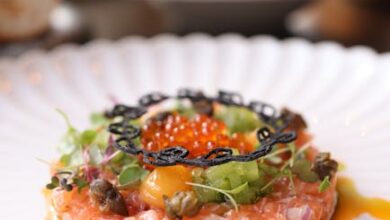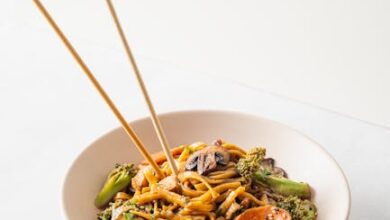Beyond the Recipe: A Story in Every Spoonful

There’s a unique magic that happens when a family recipe, passed down through generations, finds its way from a handwritten note on a smudged index card to a beautifully photographed, meticulously tested page in a cookbook. But what happens when that recipe isn’t just traveling from grandmother to grandchild, but from one continent to another? What stories does it carry, what adaptations does it make, and what new meaning does it acquire?
For decades, cookbooks have been our window into the world’s kitchens. We’ve had the classics, the celebrity chefs, and the regional deep dives. But recently, a new star has risen, casting a warm, inviting glow over our culinary landscape: the diaspora cookbook. These aren’t just recipe collections; they are heartfelt narratives, cultural preservation efforts, and bridges built with ingredients. They offer more than just a dish; they offer a taste of history, identity, and the incredibly resilient spirit of communities far from their ancestral lands. And right now, they’re not just popular—they’re having their unequivocal heyday.
Beyond the Recipe: A Story in Every Spoonful
What sets a diaspora cookbook apart isn’t solely the innovative techniques or the tantalizing ingredient lists, though they certainly deliver on both counts. It’s the profound sense of narrative that permeates every page. These books are often deeply personal, written by individuals or families who have navigated the complexities of living between two worlds, their culinary traditions serving as an anchor to home.
Think about it: when someone compiles a collection of recipes from their heritage, particularly one forged in migration, they’re doing much more than documenting measurements. They’re archiving memories, preserving linguistic quirks embedded in dish names, and sharing the very essence of what it means to belong, or to long for belonging. Each recipe might come with an anecdote about an ancestor, a description of a festive occasion, or a reflection on how a particular ingredient had to be substituted in a new country, leading to a delicious, albeit distinct, evolution of a classic.
These aren’t just instructions; they’re invitations into intimate family kitchens, vibrant community gatherings, and often, the bittersweet journeys of displacement and resettlement. They tell tales of resilience, adaptation, and the unwavering power of food to connect us to our roots, no matter how far we roam. This storytelling aspect is precisely why these books resonate so deeply; they feed our hunger not just for new flavors, but for authentic human experience.
Bridging Worlds Through Shared Tables
In an increasingly interconnected yet often polarized world, diaspora cookbooks serve as vital cultural ambassadors. They offer a tangible, delicious pathway to understanding and empathy. It’s hard to remain entirely detached when you’re learning to prepare a dish that someone’s grandmother lovingly made for generations, a dish that has traveled across oceans and generations to reach your kitchen counter.
These books introduce us to ingredients we might never have encountered, spices we haven’t yet dared to experiment with, and cooking methods that challenge our culinary comfort zones. But more importantly, they offer a window into the daily lives, celebrations, and even struggles of communities we might otherwise know little about. From the intricate spice blends of an Ethiopian stew perfected in a new American city to the delicate pastries of a Vietnamese bakery in Paris, each recipe is a lesson in cultural exchange.
The Dynamic Nature of Authenticity
One fascinating aspect of diaspora cuisine is its dynamic nature. Some might argue about “authenticity,” but these cookbooks beautifully demonstrate that food traditions are not static museum pieces. They are living, breathing entities that adapt, evolve, and often flourish in new environments. The constraints of new ingredients, different climates, or even simply the desire to innovate, lead to dishes that are both reverent to their origins and boldly new.
This evolution doesn’t diminish their authenticity; it redefines it. The “authentic” flavor of a dish might now include the local produce of California or the regional cheeses of England, all while retaining the heart and soul of its ancestral home. This adaptability is a testament to the creativity and resourcefulness of cooks who carry their culinary heritage with them, proving that home, ultimately, can be built wherever good food is shared.
A Culinary Renaissance in Your Own Kitchen
The current surge in diaspora cookbooks isn’t just about cultural appreciation; it’s also a boon for home cooks looking to expand their repertoire in genuinely exciting ways. Forget generic “international cuisine” sections; these books offer specificity, depth, and genuine expertise. They provide the guidance needed to master dishes that might once have seemed dauntingly exotic, making global flavors remarkably accessible.
With an increasing focus on fresh, vibrant ingredients and often health-conscious preparations, these cookbooks align perfectly with contemporary culinary trends. They encourage us to seek out specialty stores, explore new produce, and engage with our food in a more mindful and adventurous way. The six new cookbooks currently making waves, for instance, span an incredible range of regions and culinary philosophies, ensuring there’s something to inspire every palate and skill level.
Whether you’re craving the comforting warmth of a Syrian lentil soup, the fiery kick of a Peruvian ceviche, or the aromatic spices of an Indian curry adapted for a faster weeknight meal, these books provide the map. They demystify complex-sounding dishes with clear instructions and often charming personal notes, inviting you to experiment and discover new favorites. It’s a genuine culinary education, one that celebrates diversity and encourages us to broaden our horizons, one delicious bite at a time.
A Shared Feast for the Soul
The heyday of diaspora cookbooks is more than a publishing trend; it’s a cultural phenomenon reflecting a deeper yearning for connection, understanding, and authentic human stories. In a world that sometimes feels increasingly fragmented, these books remind us of our shared humanity, celebrated through the universal language of food.
They invite us not just to cook, but to learn; not just to eat, but to experience. They remind us that every meal has a history, every ingredient a journey, and every shared plate the potential to build bridges. So, next time you’re looking for inspiration in the kitchen, consider reaching for a diaspora cookbook. You might just find that you’re not only cooking a fantastic meal, but also embarking on a profound and delicious journey that connects you to cultures, stories, and traditions far beyond your own four walls.





